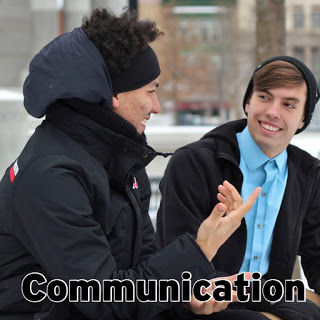As I already had two e-mails overnight from different friends of mine with kids from yesterday’s post about Savage U I thought this would make a good time to remind people about the “Artistic License” page that covers all posts I make.
It’s a strange thing in my life: Topics seem to come in waves. Divorce, publishing, teenagers, jealousy, job issues, whatever… I keep finding myself talking about the same topics to several people.
None of whom know each other.
Person A has a problem with their job. Person B – in a different industry and city! – has a similar issue. And so on.
So if you think I’m talking about you… you’re probably wrong. That and I routinely change personal details unless I ask the person in question.
So I have an artistic license policy, and have for the last four years.
It’s on the bar at the top; the text of it follows.
Privacy is important to me. Not just my own privacy, but the privacy of others. As a result, some of the details and anecdotes in this blog are, at best, “creative non-fiction”.
- I will frequently write about things that I’ve talked about in real life here on the blog. Some of those things may have been sparked by a conversation I had with other people, or an action someone else took.
- I frequently take artistic license when talking about real life, usually to make an example more clear.
- I frequently obfuscate real-life details, even if I report an event completely accurately.
- Many – but not all – of my posts are written well in advance of when they appear on the blog.
- I often try to relate or generalize my experiences from one area of my life to another one. This happens enough that it’s actually part of my bio on my website.
- I never violate privacy laws or ethical guidelines around privacy. If it appears that I am, it is a fictionalized account.
- If I’m reacting to a blog post, tweet, public seminar – anything that’s a broadcast medium – I will usually cite the person I’m talking about if I can and if it’s relevant.
- If it was prompted by a non-broadcast or limited broadcast medium – a private conversation, e-mail, anything on Facebook, forum post behind a password – then I will usually obfuscate the individual(s) in question.
- If I didn’t explicitly “out” you as the person I was talking to, there’s one of four reasons (the last two are the most common, by far):
- I didn’t want to for my own reasons.
- I didn’t ask you about it beforehand.
- I wasn’t talking about you
- I wasn’t just talking about you.
- If you choose to “out” yourself, please remember #3 above and realize how you might look silly.
- If you think I’m talking about you and I misunderstood your point, please remember #3 above and ask me. For example, I could say “a female writer I know who I spoke to about eBooks” and easily refer to fifty people or more.
